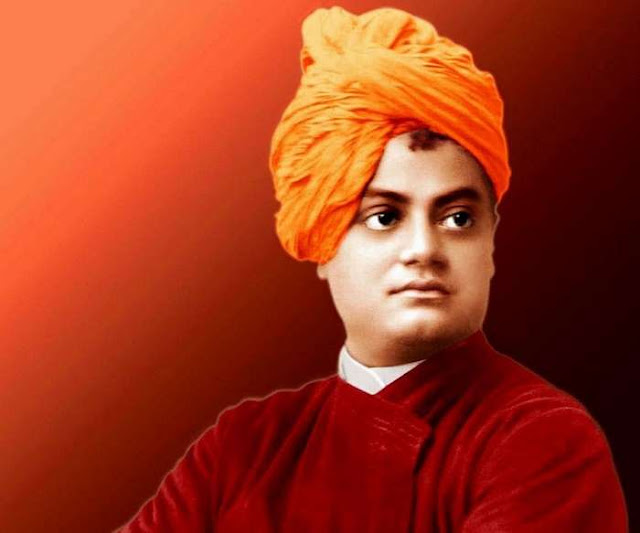- Get link
- Other Apps
Swami Vivekananda Essay
Introduction:
Swami Vivekananda was one of the most prominent spiritual leaders and thinkers of modern India. He was born in Kolkata in 1863 and played a significant role in the revival of Hinduism in the late 19th century. Swami Vivekananda was a disciple of Sri Ramakrishna, who was his spiritual teacher and mentor. He was known for his charismatic personality, powerful oratory skills, and his emphasis on the importance of spiritual values in life.
Early Life and Education:
Swami Vivekananda was born as Narendranath Datta to an aristocratic Bengali family. His father, Vishwanath Datta, was a successful attorney, and his mother, Bhuvaneshwari Devi, was a devout housewife. From a young age, Swami Vivekananda showed a keen interest in spirituality and was deeply influenced by his mother's devotion to God. He was also a brilliant student and excelled in academics.
Swami Vivekananda attended the prestigious Presidency College in Kolkata, where he studied Western philosophy, history, and literature. He was particularly interested in the works of philosophers like Immanuel Kant, Arthur Schopenhauer, and Herbert Spencer. However, he was also deeply troubled by the poverty and suffering he saw around him and felt a strong urge to do something about it.
Spiritual Awakening:
In 1881, Swami Vivekananda met Sri Ramakrishna for the first time and was immediately drawn to him. Sri Ramakrishna was a well-known mystic and spiritual teacher who had a profound impact on Swami Vivekananda's life. Swami Vivekananda became his disciple and spent several years with him, learning about various spiritual practices and gaining a deeper understanding of Hinduism.
After Sri Ramakrishna's death in 1886, Swami Vivekananda went on a spiritual quest, traveling across India and meditating in various holy places. During this time, he experienced several spiritual awakenings and gained a profound insight into the nature of existence. He also became convinced of the importance of spreading the message of Hinduism to the world.
Role in the Revival of Hinduism:
Swami Vivekananda played a significant role in the revival of Hinduism in the late 19th century. At a time when Hinduism was facing challenges from colonialism and Westernization, Swami Vivekananda emphasized the universality and relevance of Hinduism. He believed that Hinduism had something valuable to offer the world and that it could provide solutions to the problems facing modern society.
Swami Vivekananda also believed in the importance of individual spiritual development. He encouraged people to cultivate their spiritual potential and to strive for self-realization. He emphasized the role of meditation and self-discipline in achieving spiritual growth.
Legacy:
Swami Vivekananda's legacy is profound and far-reaching. His teachings and ideas have influenced generations of people, both in India and around the world. He is remembered for his emphasis on the importance of spiritual values, his commitment to social service, and his message of universal brotherhood.
The Ramakrishna Mission, which Swami Vivekananda founded in 1897, continues to be one of the most prominent organizations dedicated to social service and spiritual development in India. It has branches all over the world and is involved in a wide range of activities, including education, healthcare, and disaster relief.
Conclusion:
Swami Vivekananda was a visionary thinker and spiritual leader who played a significant role in the revival of Hinduism in the late 19th century. He emphasized the importance of spiritual values, individual spiritual development, and social service. His legacy continues to inspire and influence people all over the world, and his teachings remain relevant and valuable today.
- Get link
- Other Apps

Comments
Post a Comment